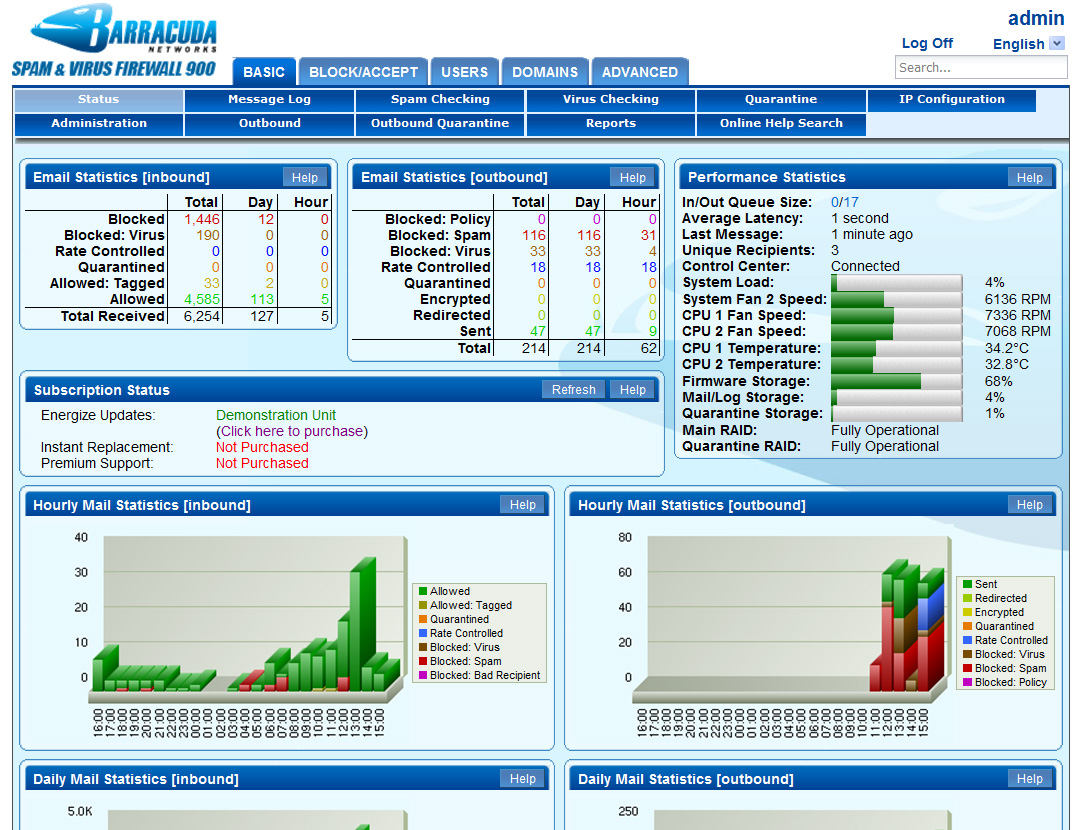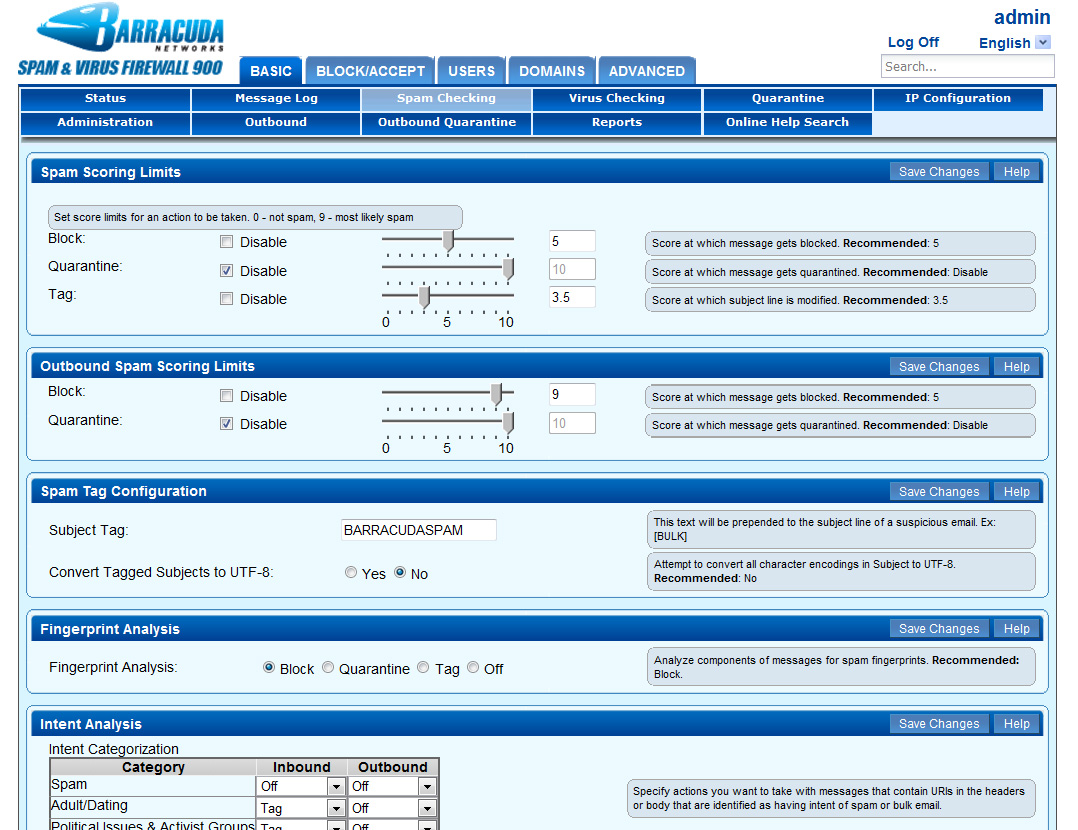Barracuda Networks Spam and Virus Firewall 900 review
Barracuda’s Spam and Virus Firewall 900 claims an impressive anti-spam performance, but at a high price. In this exclusive review, Dave Mitchell finds out if its real world performance and messaging security features are worth digging deep for.
Barracuda’s anti-spam appliances have always impressed us with their top-notch detection rates and the 900 model is no exception. It delivered a very high score out of the box in our real-world tests, and it was easy to deploy and configure. The hardware itself could be more up to date considering the price, but its performance and features can’t be faulted.

All further configuration is via the appliance's web interface, which opens with an informative status screen showing tables and graphs of hourly and daily inbound and outbound mail traffic. It's all colour-coded, so it's easy to see what mail is being allowed, blocked, tagged or quarantined.

Barracuda's web interface provides easy access to all security features and opens with a detailed graphical overview of inbound and outbound message activity.
Next, mail recipient domains and the addresses of the mail servers the appliance will be routing mail for are added. Incoming mail must also be routed to the appliance and this can be achieved with a firewall port-forwarding rule, or by changing the DNS MX record.
For inbound mail, Barracuda uses an impressive arsenal of spam detection tools which include Bayesian algorithms, real-time blacklists, reverse DNS lookups, IP reputation analysis, fingerprinting, content filtering, keyword blocking and intent analysis. These are used to derive a score for each message and determine whether suspect messages are blocked, quarantined or tagged.
The Energize Update subscription seems high, but this does also include free access to Barracuda's Cloud Protection Layer (CPL). This can reduce local traffic by applying pre-filters to incoming mail, so spam and mail-borne viruses are stopped before they even get to the local network.

You can tweak the spam detection scoring system but we found it worked very well on the default values.
Rather than use bogus or old samples of harvested spam to test detection rates, we opted to set up the appliance to scan incoming mail in a totally live environment. This is a far more realistic test of the appliance's detection techniques, since it has to handle new and emerging threats in real time.
We left the spam scores and actions at their default settings and configured our Outlook clients to move any tagged messages into a separate folder. The appliance's message log was monitored during the test and, on completion, was exported into a spreadsheet for further analysis.
Get the ITPro daily newsletter
Sign up today and you will receive a free copy of our Future Focus 2025 report - the leading guidance on AI, cybersecurity and other IT challenges as per 700+ senior executives
Dave is an IT consultant and freelance journalist specialising in hands-on reviews of computer networking products covering all market sectors from small businesses to enterprises. Founder of Binary Testing Ltd – the UK’s premier independent network testing laboratory - Dave has over 45 years of experience in the IT industry.
Dave has produced many thousands of in-depth business networking product reviews from his lab which have been reproduced globally. Writing for ITPro and its sister title, PC Pro, he covers all areas of business IT infrastructure, including servers, storage, network security, data protection, cloud, infrastructure and services.
-
 Westcon-Comstor and Vectra AI launch brace of new channel initiatives
Westcon-Comstor and Vectra AI launch brace of new channel initiativesNews Westcon-Comstor and Vectra AI have announced the launch of two new channel growth initiatives focused on the managed security service provider (MSSP) space and AWS Marketplace.
By Daniel Todd Published
-
 Third time lucky? Microsoft finally begins roll-out of controversial Recall feature
Third time lucky? Microsoft finally begins roll-out of controversial Recall featureNews The Windows Recall feature has been plagued by setbacks and backlash from security professionals
By Emma Woollacott Published
-
 The UK government wants quantum technology out of the lab and in the hands of enterprises
The UK government wants quantum technology out of the lab and in the hands of enterprisesNews The UK government has unveiled plans to invest £121 million in quantum computing projects in an effort to drive real-world applications and adoption rates.
By Emma Woollacott Published